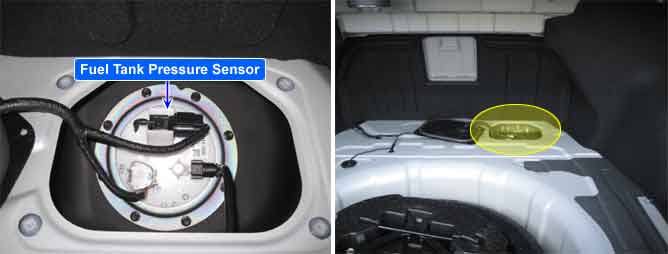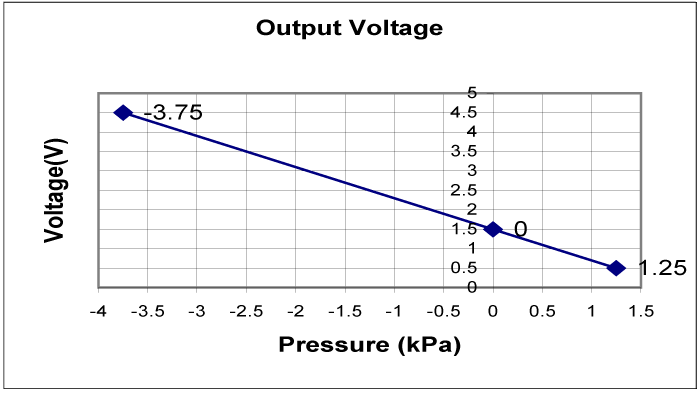

The evaporative emission control system prevents hydrocarbon vapors from escaping from the fuel tank into the atmosphere where they could form photochemical smog. Gasoline vapors are collected in the charcoal canister. The Fuel Tank Pressure Sensor (FTPS) is an integral part of the evaporative monitoring system. The PCM monitors the FTPS signal to detect vacuum decay and excess vacuum. The FTPS measures the difference between the air pressure inside the fuel tank and outside air pressure to check the purge control solenoid valve operation and for leak detection in the evaporative emission control system by monitoring pressure and vacuum levels in the fuel tank during the purge control solenoid valve operating cycles.
The PCM monitors pressure stability in the fuel tank by means of Fuel Tank Pressure Sensor (FTPS) for predetermined duration just before start the leakage monitoring to detect noise signal of pressure sensor. The PCM sets DTC P0454 if the pressure fluctuation is bigger than predetermined threshold.
Item | Detecting Condition | Possible Cause |
DTC Strategy |
•
Noisy signal check | 1. Poor connection or damaged harness 2. Faulty FTPS |
Enable Conditions |
•
Coolant temperature > 74℃(165℉)
•
Ambient air temperature model > -10℃(14℉)
•
Vehicle speed < 10km/h(6mph)
•
Time after start > 590 Seconds
•
Limited Canister saturation
•
Estimated altitude< 2.4km(8000ft)
•
Canister load <1
•
Minimum canister purge time: 3~25 Seconds
•
-1700 Pa < Differential fuel tank Pressure < 400 Pa
•
Idle speed engine operating state
•
No relevant failure
•
11V < Battery voltage < 16V | |
Threshold Value |
•
Leak detection test inhibited more than 3 times due to noise in tank pressure signal | |
Diagnostic Time |
•
3 times Leak test inhibited by Noisy signal | |
Mil On Condition |
•
2 Drive Cycles |
PesrPesr | -3.75 kPa(-1.10 inHg) | 0 kPa(0 inHg) | 1.25 kPa(0.37 inHg) |
FTPS output voltage | 4.5 V | 1.5 V | 0.5 V |
